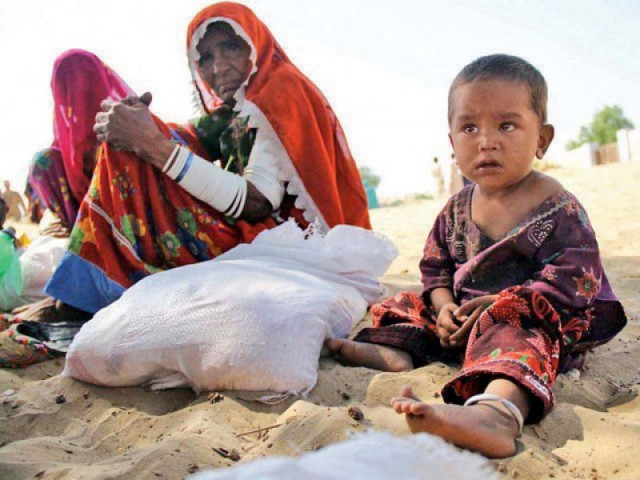7.6m people to face food insecurity by 2030, predicts WB report
Says Pakistan remains vulnerable to climate change

Pakistan is highly vulnerable to the worsening effects of climate change. To avoid increasing poverty rates, building resilience is key, otherwise there is a significant probability of more frequent and intense events such as droughts, floods, and sea-level rises.
This was revealed by a World Bank high-powered delegation led by its regional director for sustainable development for South Asia, John A. Roome, who met with Sindh Chief Minister Syed Murad Ali Shah at the CM House on Monday.
The meeting was attended by provincial ministers, the chief secretary, the chairman of P&D, and other officials.
Through a presentation, the World Bank's regional director for South Asia told the meeting that Pakistan's recent poverty reduction efforts suffered from macro-fiscal vulnerabilities and low and volatile growth.
The report stated that while extreme poverty had been reduced due to off-farm economic activities and foreign remittances, growth in per capita GDP had been volatile and low.
Climate change is already having devastating effects on the country. The unprecedented floods in 2002 brought one-third of the country underwater, caused 1,700 casualties, and affected around 33 million people, it observed. Pakistan needed $16 billion to recover.
According to the report, the 2022 floods will likely hamper progress toward the achievement of the Sustainable Development Goals (SDGs) in Pakistan by 2030.
Some 8.4 to 9.1 million people would be pushed into poverty, and 6 to 7 million people would fall further behind. An additional 7.6 million people face food insecurity, 17 million women and children are at greater risk of preventable diseases, 4.3 million people would face job loss or disruption, and 640,000 women and girls are at risk of gender-based violence.
The report suggests that an inclusive and resilient recovery through a holistic approach would lead to sustainable development for the people and country. The pillars of the recovery, according to the report, include the restoration of jobs, livelihoods, recovery and reconstruction of critical assets, services, and infrastructure.
Published in The Express Tribune, March 14th, 2023.



















COMMENTS
Comments are moderated and generally will be posted if they are on-topic and not abusive.
For more information, please see our Comments FAQ